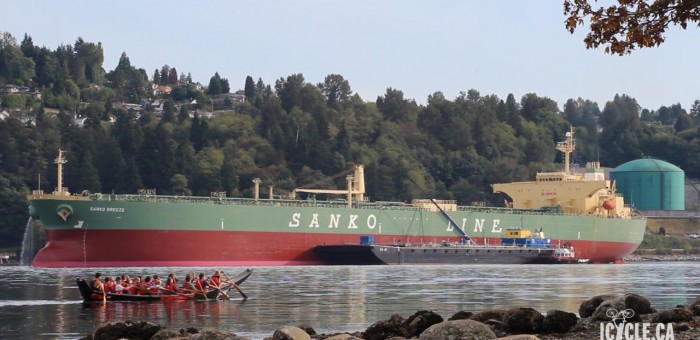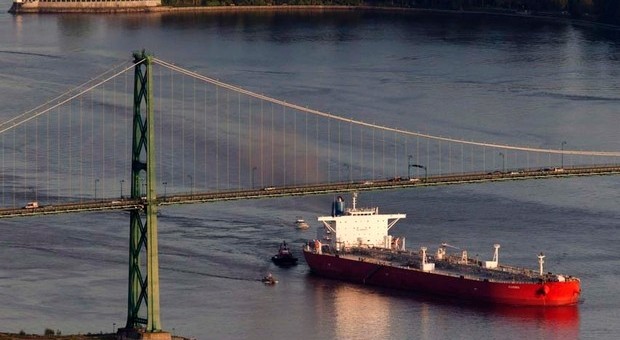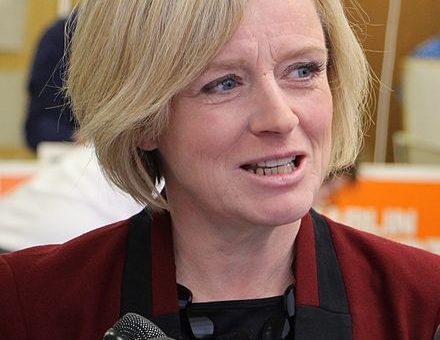Pipelines
Question Period: The influence of lobbying and corporate donations
Today in the Legislature I was up in Question Period. I questioned the Minister of Justice, Suzanne Anton, about the lobbying and donation practices of the fossil fuel industry and the effect on government decision-making. I also asked about reforms needed to regulate the lobbying industry in BC and bring it in line with federal standards.
My question follows reports in the media over this week that lobbyists are engaging in illegal donation practices on behalf of their clients, as well as a recent analysis that maps the influence of the fossil fuel industry in BC politics, highlighting extensive lobbying practices and vast amounts of political donations. Both reports can be found at the end of this article.
Below are the text and video of the exchange. I was disappointed with the Minister’s answers. She merely restated that we have a registry of lobbyists in BC. We do have a registry, but its usefulness as a tool of transparency is severely limited, since lobbyists are not required to report the meetings they hold with public office holders. Moreover, we have no code of conduct for lobbyists to regulate practices such as gift-giving to public office holders. The Office of the Registrar of Lobbyists recommended both of these measures, back in 2013, as important ways to make lobbying practices more transparent in BC. Yet the government has ignored these recommendations and the Minister of Justice was unwilling to engage on this serious issue.
Question
A. Weaver: Vast amounts of money are flowing from fossil fuel companies to both the B.C. Liberals and — to a much lesser extent, mind you — the B.C. NDP.
Between 2008 and 2015, 48 fossil fuel companies and industry groups donated $5.2 million to the government and official opposition and reported more than 22,000 lobbying contacts with public officials between 2010-2016. With seven of the top donors also ranking among the most active lobbyists, there is a substantial overlap between those who give money and those who get meetings.
To further that, 28 percent of lobbying by the top-ten most active lobbyists has been directly with cabinet ministers — an unrivaled level of access — and the Minister of Natural Gas Development is the most targeted member in the entire Legislature.
In light of this, my question to the Minister of Justice is this. How does the government expect the public to trust that their interests are being protected and that these practices are not buying lobbyists and their clients special treatment?
Answer
Hon. S. Anton: It may be that the member was not here yesterday to know that we actually established the first-ever lobbyist registry in 2002 to establish transparency so British Columbians could see who is doing the lobbying. There never was a registry before that. After some years of experience with that registry, we updated it in 2009, creating one of the strongest regimes for lobbyist registration in Canada.
The updates increased the registrar’s powers and duties so the lobbyist registrar now has the power to conduct investigations, to compel testimony and to compel documents. In other words, the lobbyist registrar has the tools that he or she needs in order to make sure that the registry is conducted properly and that the lobbyists are conducting themselves in accordance with the rules, which is what I expect, which is what we expect as a government.
Supplemental Question
A. Weaver: I’m glad the minister talked about the lobbying registry, because frankly, we are one of the weaker in the country of Canada. B.C. lacks rules to regulate lobbying practices and ensure transparency.
We know that extensive lobbying is ongoing in B.C., but we have no code of conduct for lobbyists. Moreover, we have no requirement in B.C. for lobbyists to register actual meetings with public office holders. All they have to do is register who they plan to lobby. Other jurisdictions in Canada have much stricter standards.
It’s clear to me that with our rampant cash-for-access system and allegations that lobbyists are engaging in illegal donation practices on behalf of their clients — largely to the B.C. Liberals but also to the B.C. NDP — that we need much more stringent rules. We need standards against which the public can hold lobbyists and their contacts in the government to account.
My question to the Minister of Justice is: will the minister commit to transparency on lobbying practices, including requiring lobbyists to report on actual meetings held with government officials and creating a code of conduct for lobbyists?
Answer
Hon. S. Anton: The matter that the member referred to about contributions is very clearly, if that were to happen, a breach not of the lobbyists act but of the Election Act. The Election Act in section 186(2)(b) says that “an individual may make a political contribution with the money of another individual, but must disclose to the individual required to record the contribution under section 190….”
In other words, you can make a payment on behalf of a third party, but the third party must be disclosed. It must be very clear that it is that third party’s money which has gone to the payment. That is a breach of the Election Act. It is very clearly a breach if that is conducted. I think that that’s the conduct the member is referring to.
In fact, to the lobbying act itself, the 2009 updates to the act put very strict and significant penalties into that act for breaches of the act.
Video from Question Period
Sources
Mapping Political Influence: Political donations and lobbying by the fossil fuel industry in BC, Corporate Mapping Project, Canadian Centre for Policy Alternatives. Available at: http://www.corporatemapping.ca/bc-influence/.
Lobbying in British Columbia: The Way Forward: Report on Province-Wide Consultations and Recommendations for Reform, Elizabeth Denham, Registrar of Lobbyists. Available at: https://www.lobbyistsregistrar.bc.ca/handlers/DocumentHandler.ashx?ID=447.
‘Fairly limited’ transparency rules for lobbyists in B.C., deputy registrar says, Liam Britten, CBC News. Available at: http://www.cbc.ca/news/canada/british-columbia/lobbying-lobbyists-b-c-1.4014551.
British Columbia: The ‘wild west’ of fundraising, Kathy Tomlinson, CBC News. Available at: http://www.theglobeandmail.com/news/investigations/wild-west-bc-lobbyists-breaking-one-of-provinces-few-political-donationrules/article34207677/.
Bill M219 — Recall and Initiative Amendment Act, 2017
Today in the Legislature I rose to re-introduce my private members bill entitled Bill M219: Recall and Initiative Amendment Act.
It is clear that British Columbians are concerned about oil pipelines and have lost confidence in the federal review process. The problem is, the tools we have to make our voices heard are too restrictive. If enacted, this bill would give British Columbians a stronger voice on how oil pipeline proposals are evaluated in the province.
Last October the residents of Bella Bella saw first hand how unprepared we are for an oil spill. It’s clear from the federal hearings I participates in on the Trans Mountain pipeline that these concerns aren’t being adequately addressed. In addition, no specifics have been outlined as to how recently announced federal funding will be used to prepare for a heavy oil spill.
My bill would make it easier for British Columbians to require their provincial government to hold a made-in-B.C. hearing process on oil pipelines.
Introductory Remarks on the Bill
A. Weaver: I move that a bill intituled the Recall and Initiative Amendment Act, 2017, of which notice has been given, be introduced and read a first time now.
Motion approved.
A. Weaver: It gives me great pleasure to introduce this bill, which is designed to empower British Columbians so that their voices can be more effectively heard on environmental reviews of major projects such as oil pipelines.
If we are to re-engage British Columbians in our democracy, we need to actively seek their view on far more of what we debate in this Legislature. We also need to provide them with additional tools to hold their government to account. The Recall and Initiative Amendment Act is one such tool. British Columbians have lost faith in the federal review process, particularly as it pertains to oil pipeline proposals. The province has not listened to their voices.
This bill would offer British Columbians an opportunity to ensure that their voices are indeed heard. If an initiative were to pass under the proposed changes in the Recall and Initiative Amendment Act, it would require government to pull out of an existing environmental equivalency agreement for a particular project and hold its own made-in-B.C. review of, for example, a proposed heavy-oil pipeline.
I move that the bill be placed on the orders of the day for second reading at the next sitting of the House.
Bill M219, Recall and Initiative Amendment Act, 2017, introduced, read a first time and ordered to be placed on orders of the day for second reading at the next sitting of the House after today.
Video of Introductory Remarks
Statement on BC Government’s Approval of Kinder Morgan Pipeline
Statement on BC Government’s Approval of Kinder Morgan Pipeline
For immediate release
January 11, 2017
VICTORIA B.C. – BC Green Party Leader, Andrew Weaver, and BC Green Candidate for Saanich North and the Islands, Adam Olsen, have issued the following statement in response to the BC Government’s approval of the Kinder Morgan Pipeline.
“Only the BC Liberals would suggest the approval of a heavy oil pipeline that puts our communities and coastline at risk was done to advance our healthy environment,” said Andrew Weaver. “I reviewed the exact same material as the BC Government as an official intervenor and I can tell you unequivocally, the evidence does not support this decision. The evidence does not support their assurances that we can adequately respond to a heavy oil spill, nor does it backup the government’s misleading claims about the economic effects this pipeline will have.”
“You’d think that, at the very least, Kinder Morgan would have been expected to show that they can clean up a dilbit spill to get approval. But they haven’t – because they can’t,” said Adam Olsen. “To make the situation even more absurd, the government is responding to evidence that says we are unable to remove spilled dilbit from a marine environment by saying ‘don’t worry about it, Kinder Morgan will figure it out.’”
“This is the result of a ‘get to yes, no matter the costs’ approach to economic policy. We have a project being approved that most British Columbians are against. We have a process that actively excluded communities. Now the government is arbitrarily suggesting that its conditions have been met, while the evidence shows that’s impossible.”
Both Andrew Weaver and Adam Olsen were interveners in the Kinder Morgan Hearing process, submitting hundreds of questions and reviewing thousands of pages of documentation from Kinder Morgan.
– 30 –
Media contact
Mat Wright, Press Secretary, Office of Andrew Weaver, MLA
+1 250-216-3382 | mat.wright@bcgreens.ca
Premier Notley Responds Negatively to My Request for a Public Meeting
In what has turned out to be a bizarre set of emails with Rachel Notley’s office today, it now appears that there will not be a public meeting after all. So the net result of Ms. Notley’s trip to BC was a closed door back room event with John Horgan, and a number of radio interviews wherein she talked at British Columbians. This hardly builds trust especially since Mr. Horgan has changed his opinions on the Kinder Morgan pipeline so many times, I’ve lost count.
Talk about lack of transparency. If Ms. Notley wanted to engage British Columbians she would listen to them, not talk at them. She has not listened and both Ms. Clark and Mr. Horgan have remained silent.
Below I reproduce both letters I received today. Now I have asked countless people about their interpretation of the first letter. It was unanimous that people felt that this was to be interpreted as an invitation for a public meeting. The second letter is pretty clear.
Text of the First Letter
Dear Mr. Weaver:
On behalf of Premier Notley, thank you for your email. I appreciate you reaching out and I have shared your invitation with Premier Notley and her scheduling staff to organize a public meeting between you and her team.
Premier Notley’s scheduling staff will follow up with you shortly.
Regards,
Sonya McAdam
Premier’s Correspondence Unit
Text of the Second Letter
Dear Dr. Weaver,
Thank you for your letter of December 5th, 2016 to Premier Notley. Unfortunately, we are unable to oblige your request.
Sincerely,
Miriam Rycroft
Director of Scheduling, Office of the Premier
Premier Notley Responds Positively to My Request for a Public Meeting
Earlier today I received an email from Rachel Notley’s staff (reproduced below). The email accepted my request for a public meeting on the Kinder Morgan pipeline. While details are scant at this stage, and I’m not sure what a meeting with “her team” means, I am very pleased that British Columbians will be given an opportunity to witness a public discussion on the issue of the Kinder Morgan pipeline.
As the only MLA who served as an intervenor on this project, I will be bringing forward the myriad concerns that I highlighted during the National Energy Board Hearings. In addition, as a climate scientist who has served as a Lead Author on the 2nd, 3rd, 4th and 5th Intergovernmental Panel on Climate Change scientific assessments, I can relate this infrastructure project to the goals that Canada agreed to when it signed the Paris Accord last year.
Text of the Letter
Dear Mr. Weaver:
On behalf of Premier Notley, thank you for your email. I appreciate you reaching out and I have shared your invitation with Premier Notley and her scheduling staff to organize a public meeting between you and her team.
Premier Notley’s scheduling staff will follow up with you shortly.
Regards,
Sonya McAdam
Premier’s Correspondence Unit







